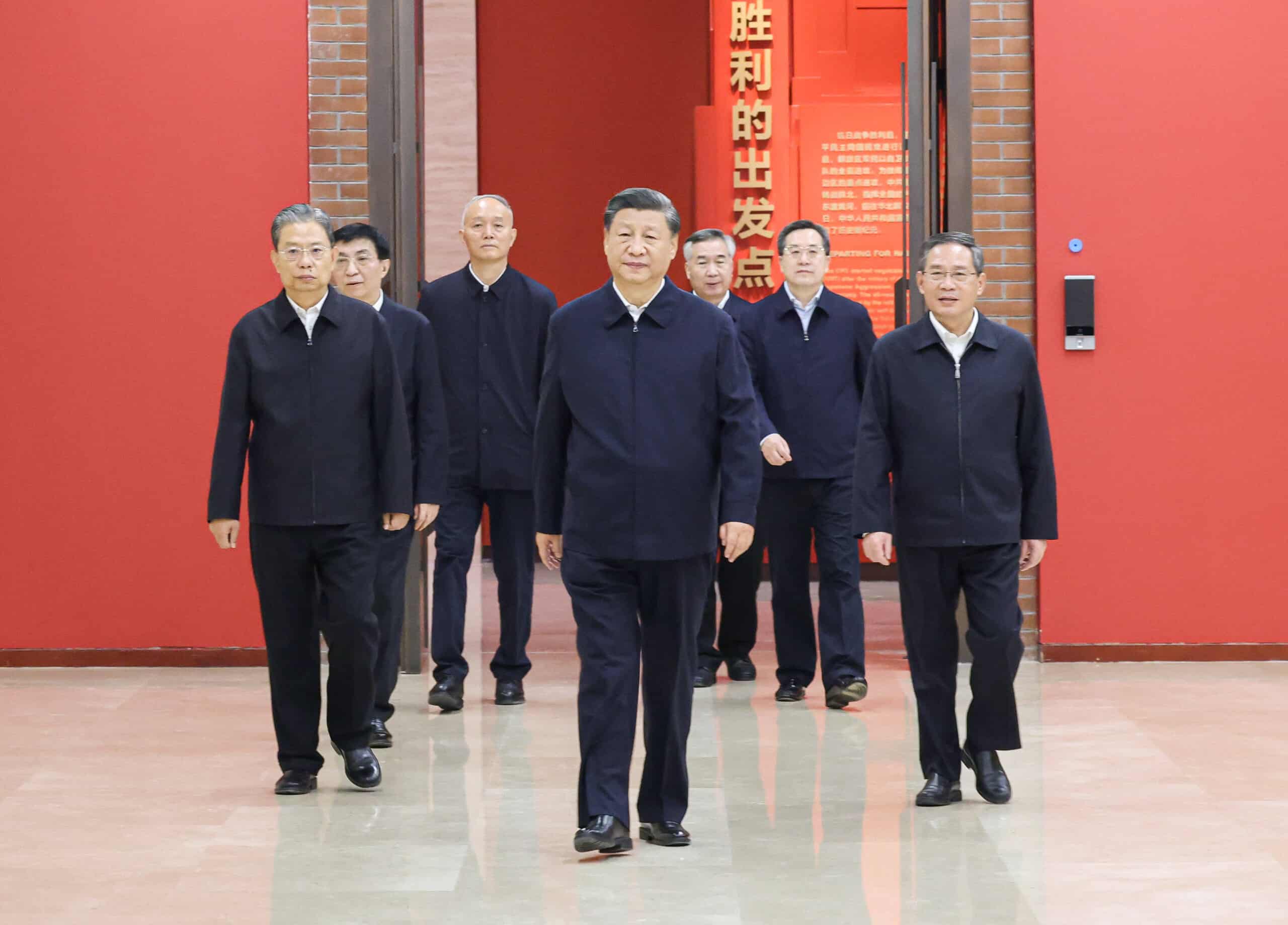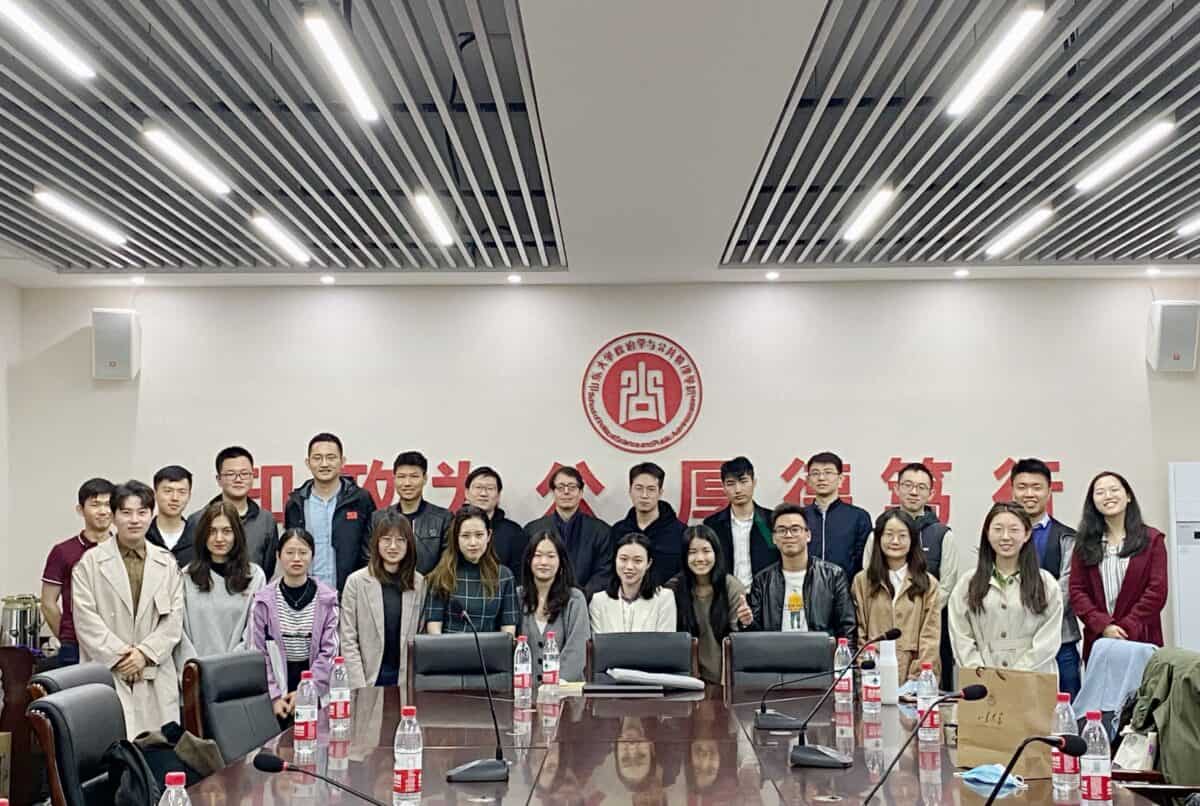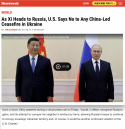The article seems to be a re-print from Prof. Bell's essay in The Wire China albeit with some changes and a more catchy headline selected by WSJ editor.Why Has Xi Jinping Let His Hair Go Gray?
Jet-black hair has been a requirement of leadership in China since ancient times, but Xi has made an exception for himself as he has consolidated power
The author Daniel A. Bell is pretty legit though, at least he can read and write write Chinese. Though it is interesting he only published the piece after leaving Shandong University for University of Hong Kong.
The Limits of One-Man Rule
Whether running a university or a country, a collegial approach to leadership works best.
BY — FEBRUARY 26, 2023
I am not now nor at any time have ever been a member of the Chinese Communist Party. Yet I served as dean of a large faculty of political science at a Chinese university that trains students and provincial cadres to serve the country as Communist Party officials. It’s typically a post reserved for members of the CCP, given the political sensitivity of the work.
is the premier university in a province of more than one hundred million people that is famed for being the home of Confucian culture. I was appointed as dean not because of a commitment to China’s official Marxist ideology but rather because of my on Confucianism. I was supposed to promote Confucianism via teaching and research. As a foreigner, I was also supposed to help internationalize our faculty and upgrade our academic output according to international standards.

I confess, however, that I also looked forward to wielding some serious power. My superiors told me that the dean has the power to shape the faculty in Chinese universities, unlike universities in the West, where the dean is often expected to serve as a kind of neutral, fair-minded umpire among (frequently warring) factions. In the Chinese system, I was told, the dean gets his way (yuanzhang shuole suan).
It did not take long for reality to puncture my ideals. On the very first day, I was asked to join the faculty leaders’ committee which consisted of four vice deans, three party secretaries, a lead administrator, and myself. I was told, half-jokingly, that it was a system of collective leadership.
As the formal leader, I was asked to speak first. I said that I would listen to the others before venturing my own views. Each member of the committee spoke for about 15 minutes about their particular area of jurisdiction (one vice dean was in charge of undergraduate education, another in charge of research, etc.) summarizing their work over the previous two weeks or so, followed by (sometimes heated) discussion. The main issues revolved around our move from Jinan to Qingdao (220 miles away) — who should get which office in our new building, which furniture should move where — and my plans to Confucianize and internationalize had to take a back seat to other priorities.
Four hours later, I was asked to make decisions. I had nothing to say. For one thing, I was not used to the various Shandong accents, so I missed some crucial details. Second, I had no idea how to decide between conflicting viewpoints because I did not know the people involved (we have about 80 professors in our faculty) or the regulations governing matters of controversy. Last but not least, I was completely exhausted after the marathon talkfest.…there is a need for a “first among equals” leader who has the ability to consider different perspectives and who has the moral if not formal authority to be decider-in-chief.

Luckily, our handsome executive vice-dean spoke up. What authority! He mastered all the details, did his best to include the suggestions of other leaders, and came up with ideas that none has mentioned before. When he spoke, all fell silent and agreed to his suggestions. Not only did they seem fair and well-thought out but he also spoke with humanity and humor. That meeting set the pattern for the next five years.
Whatever my personal failures, I do see the merits of collective leadership as an institution. I do not mean to imply that collective leadership in my faculty is ideal. Nor do I mean to imply that what we do is similar to the workings of leadership in the Standing Committee of the Politburo, China’s top policymaking body (I have no way of knowing how things work at the highest levels of government because there is no transparency).
But perhaps I can draw some implications from my own experience with a kind of collective leadership about what works and what doesn’t that may also be relevant for evaluating its workings at higher levels of government.
First, collective leadership works well if leaders work hard. I have deep admiration for fellow leaders in my faculty because they work so tirelessly for the good of the faculty. My biggest failure as dean is that I lack this capacity for hard work serving other people. But if leaders at higher levels work hard for the good of the people — unlike, say, the latter stages of the Soviet Union, where elderly leaders seemed to be just going through the motions — then we can be optimistic about the future of China’s political system.… if leaders at higher levels work hard for the good of the people — unlike, say, the latter stages of the Soviet Union, where elderly leaders seemed to be just going through the motions — then we can be optimistic about the future of China’s political system.
Second, the need for deliberation should be balanced with concern for efficiency. The big problem in our faculty is that the meetings lasted too long. Discussion in collective leadership should be focused on problems rather than reports of work already accomplished. The number of leaders should be capped to less than ten, with each leader having a chance to talk from his or her perspective about problems that need to be solved. With seven leaders in the Standing Committee, the number seems about right from an efficiency standpoint.

End of Part I

He is author of (Princeton University Press, 2023).



